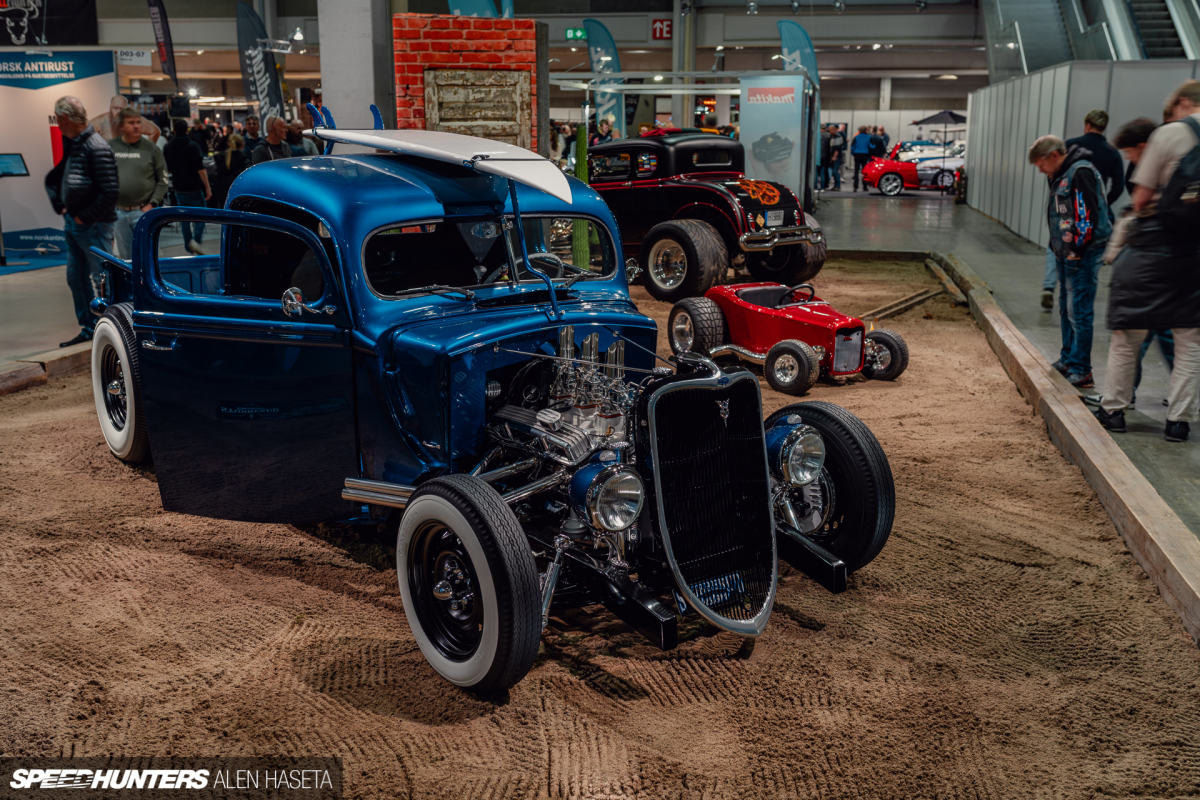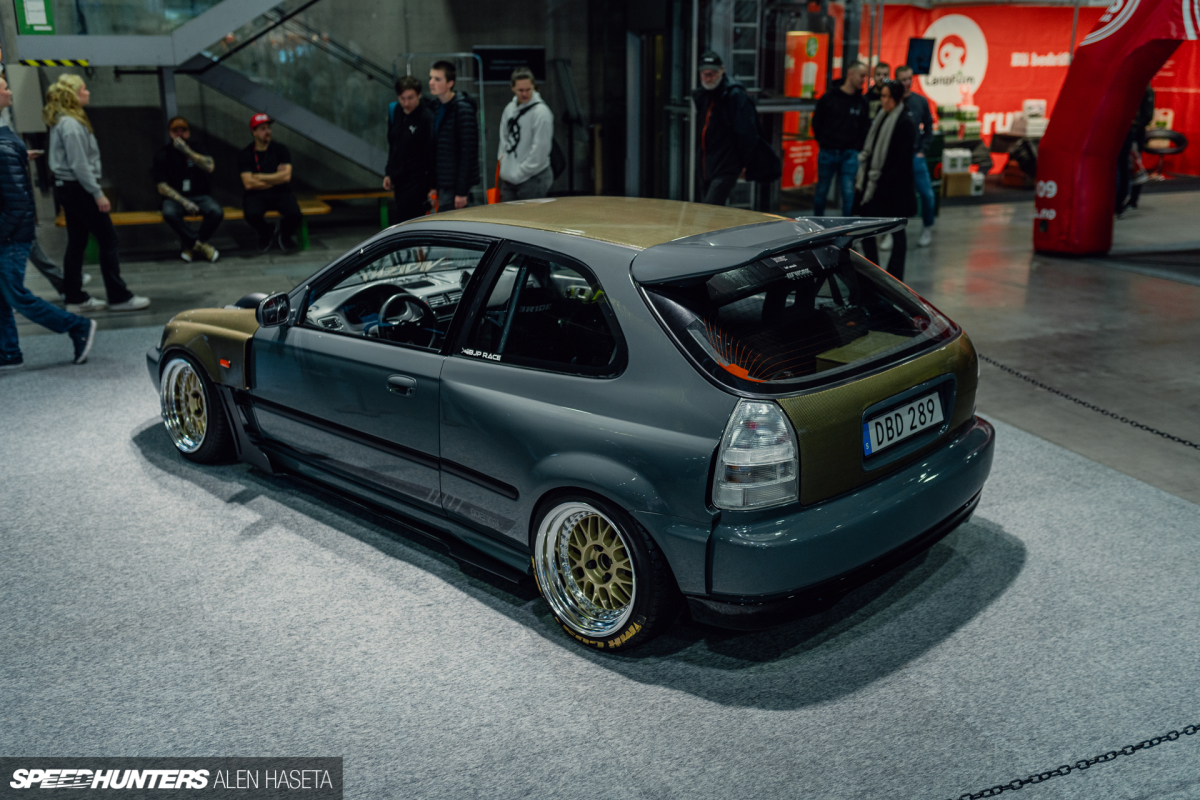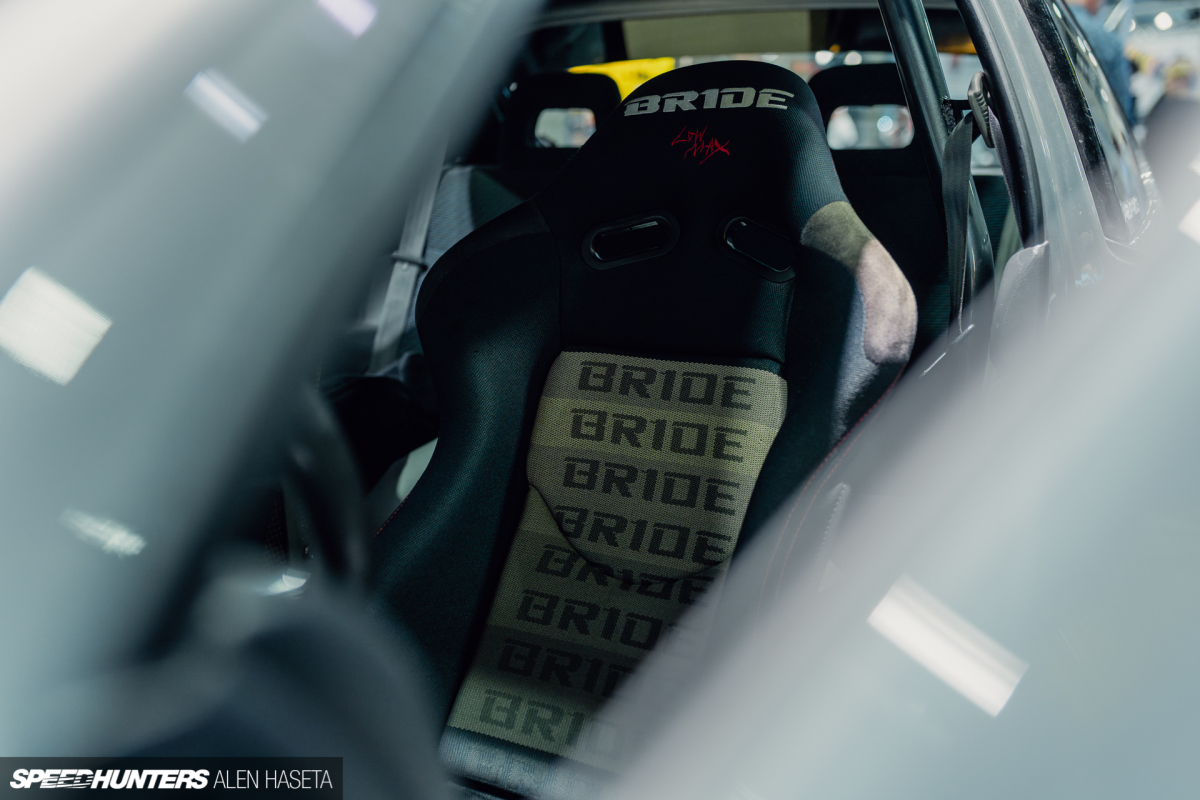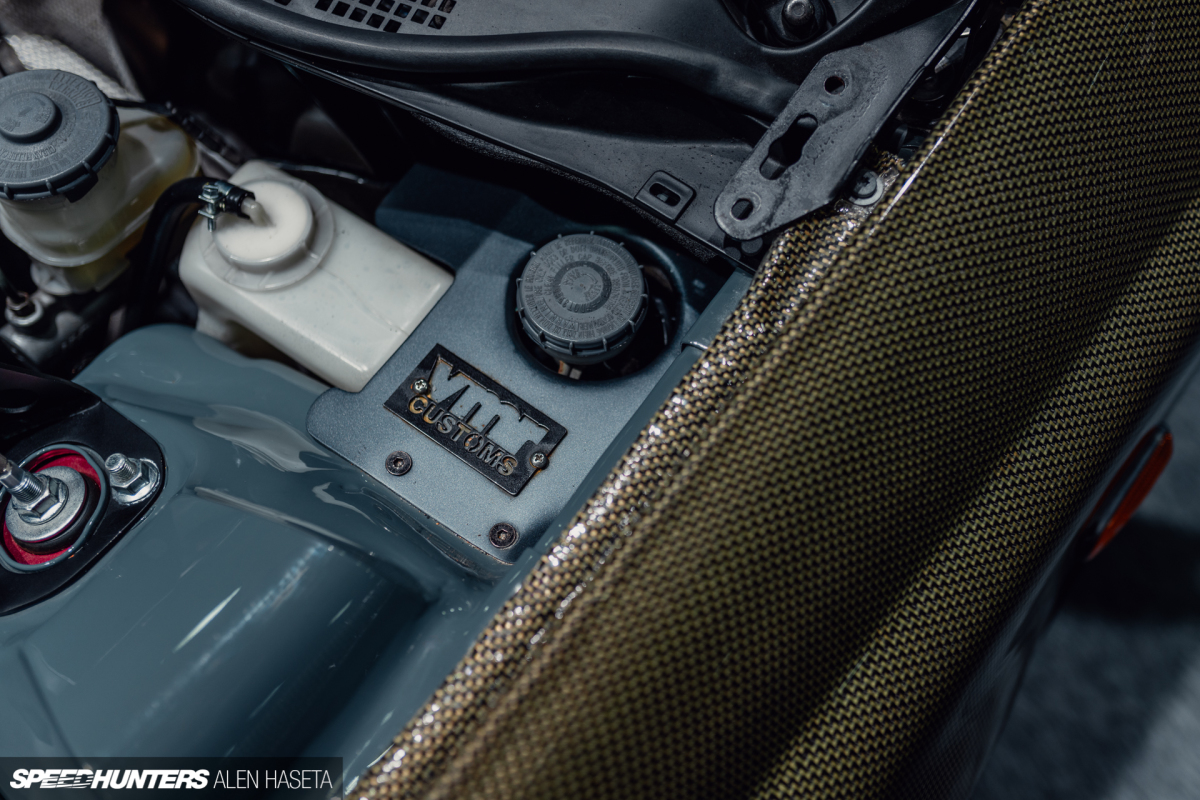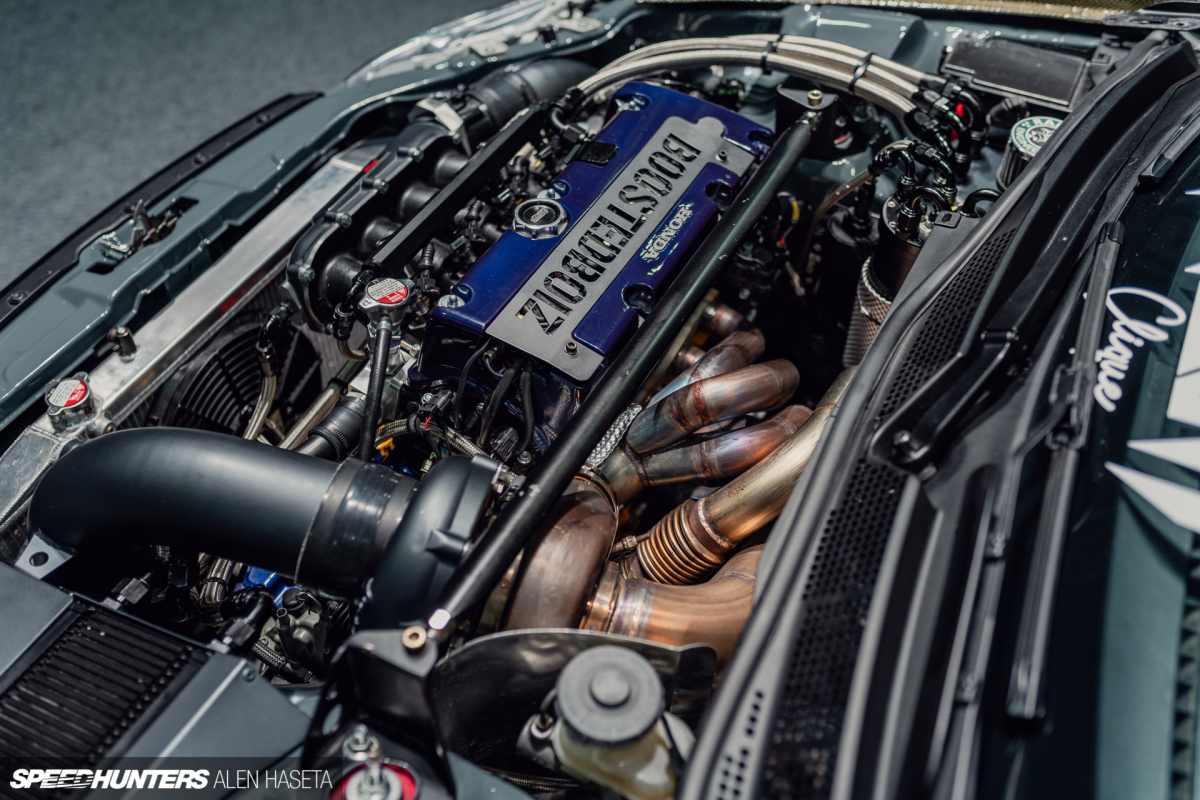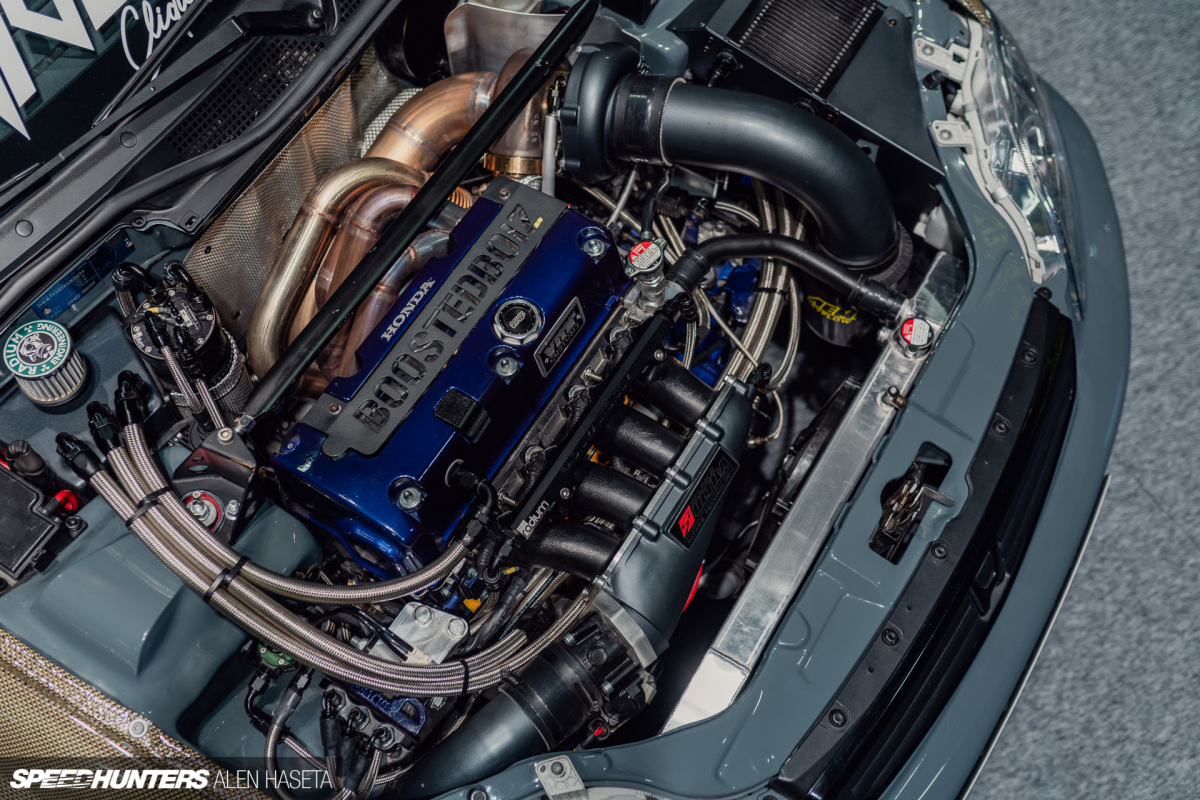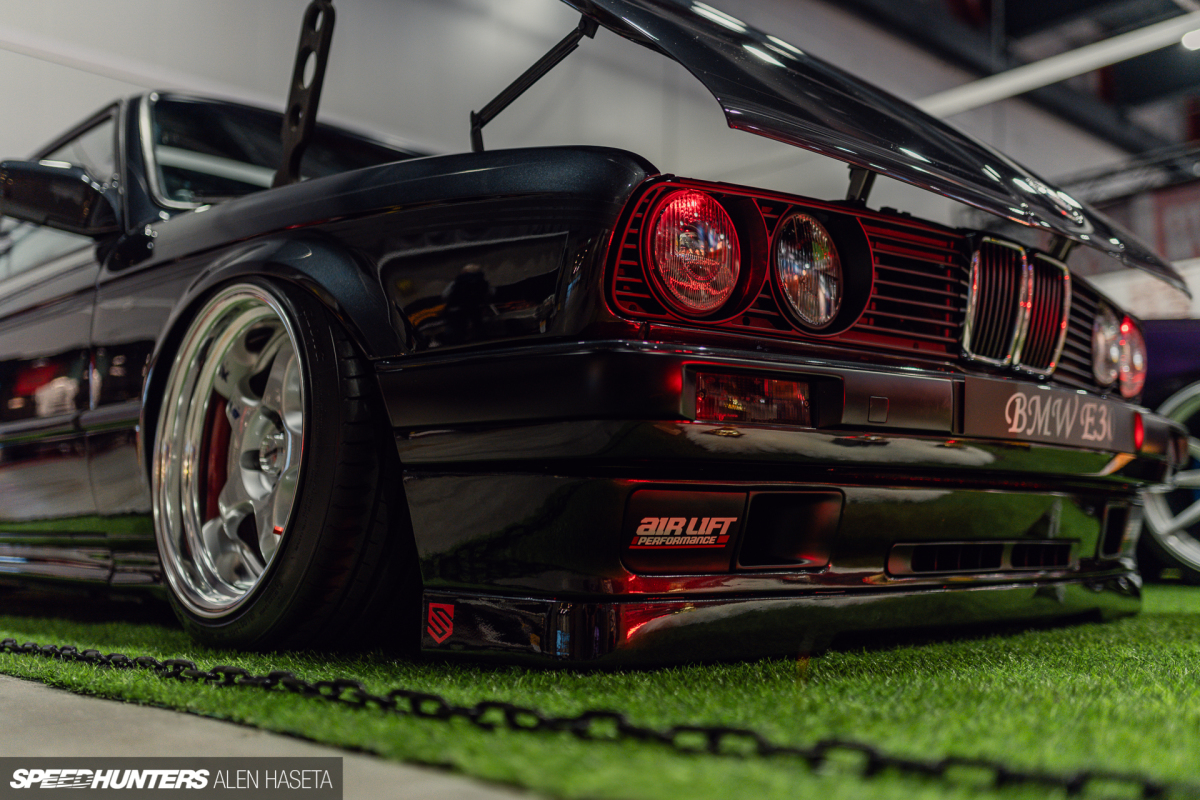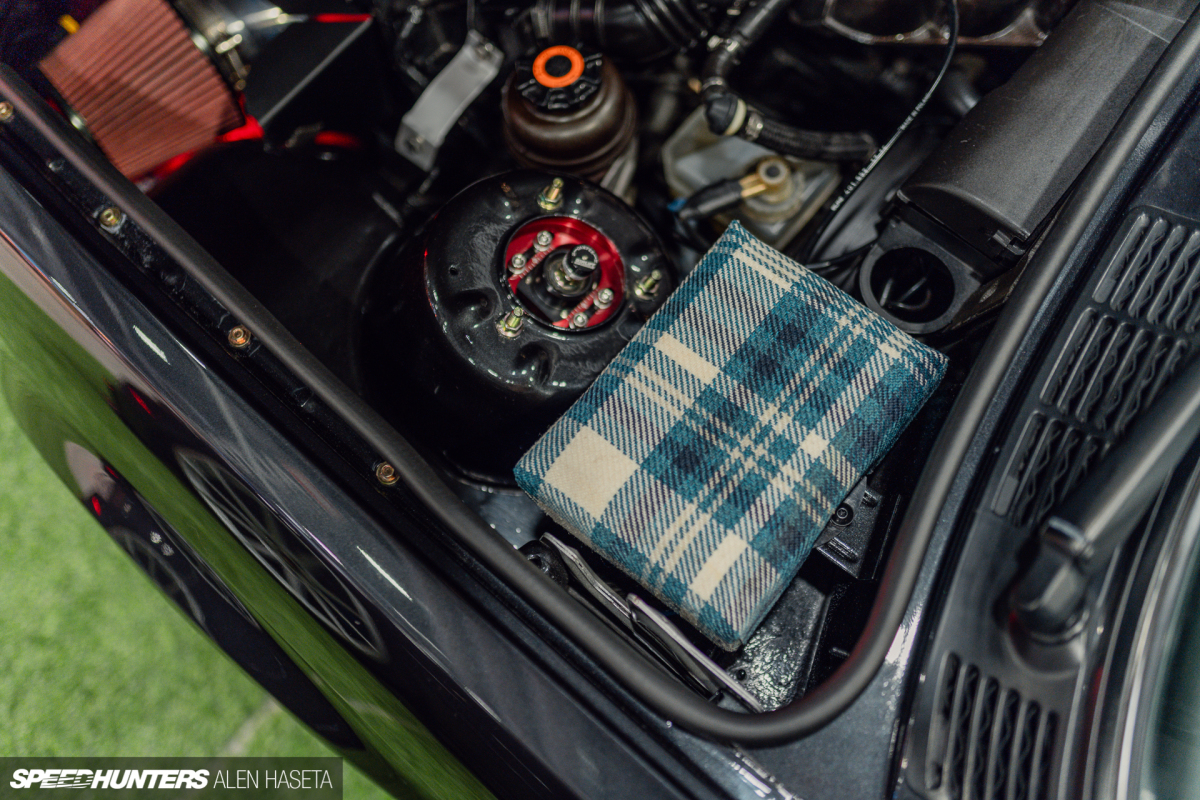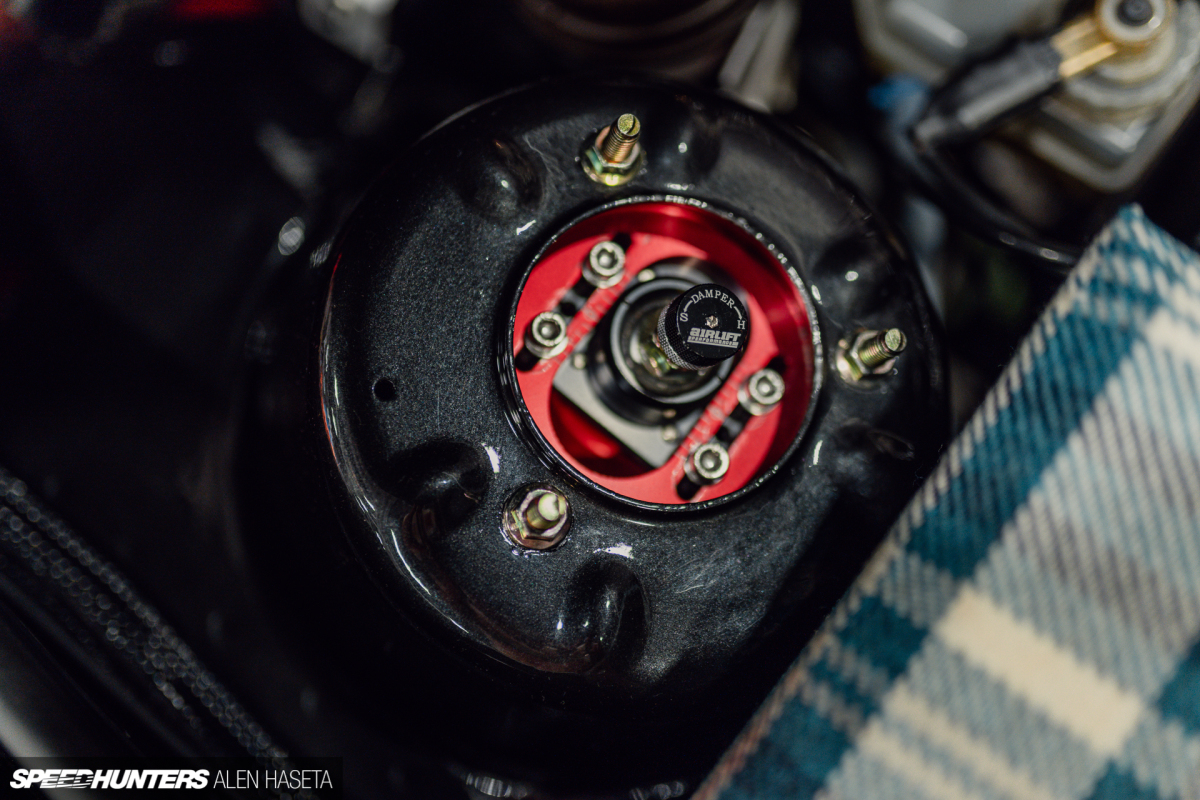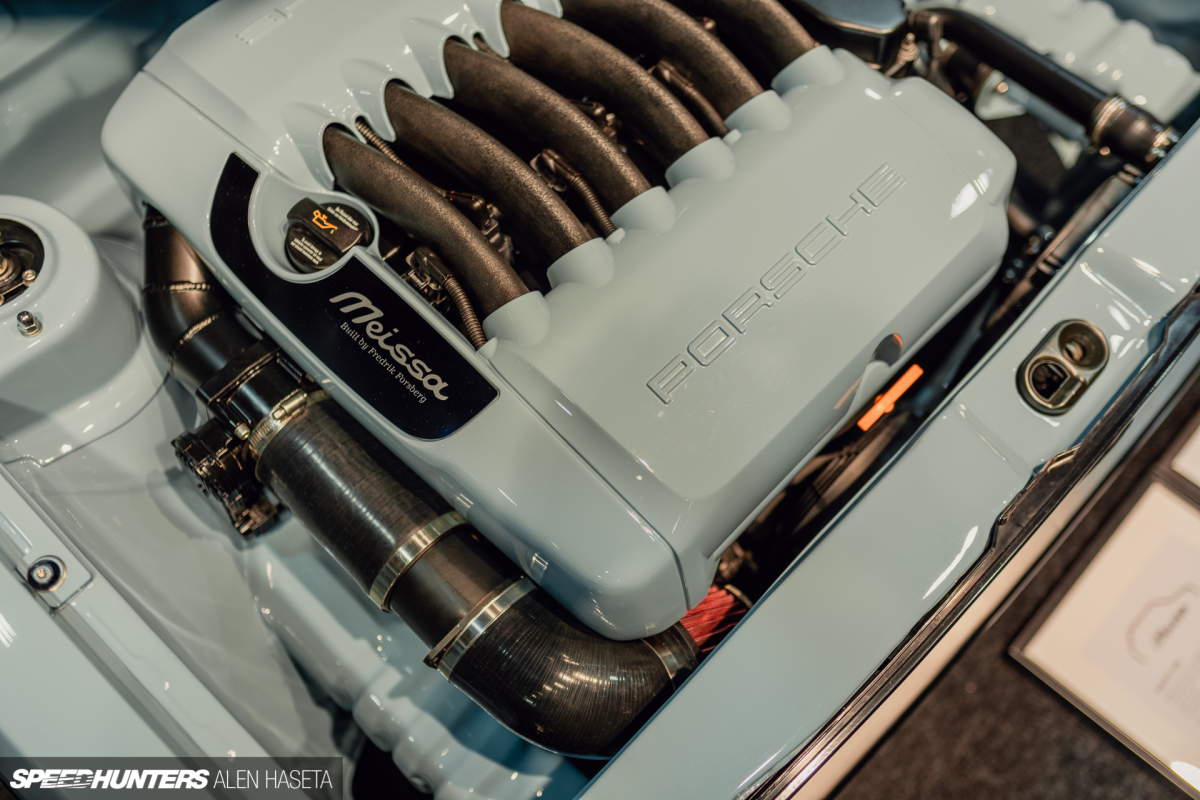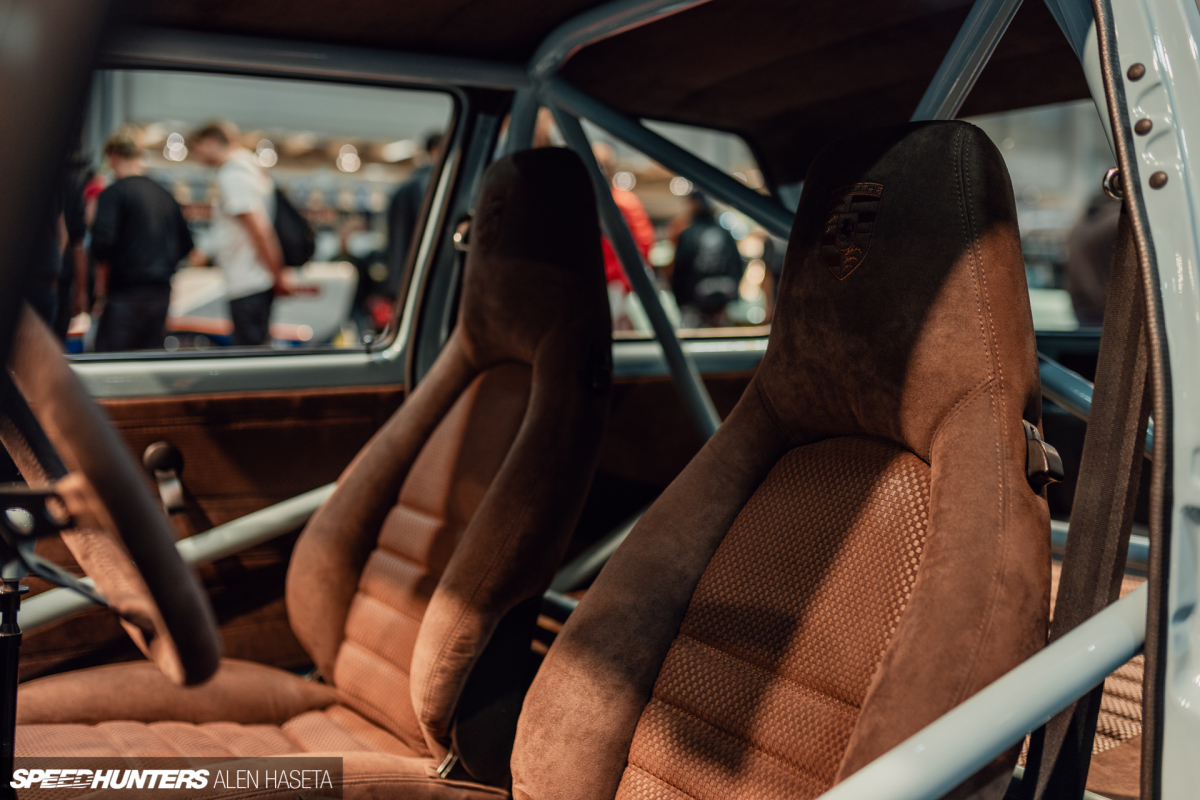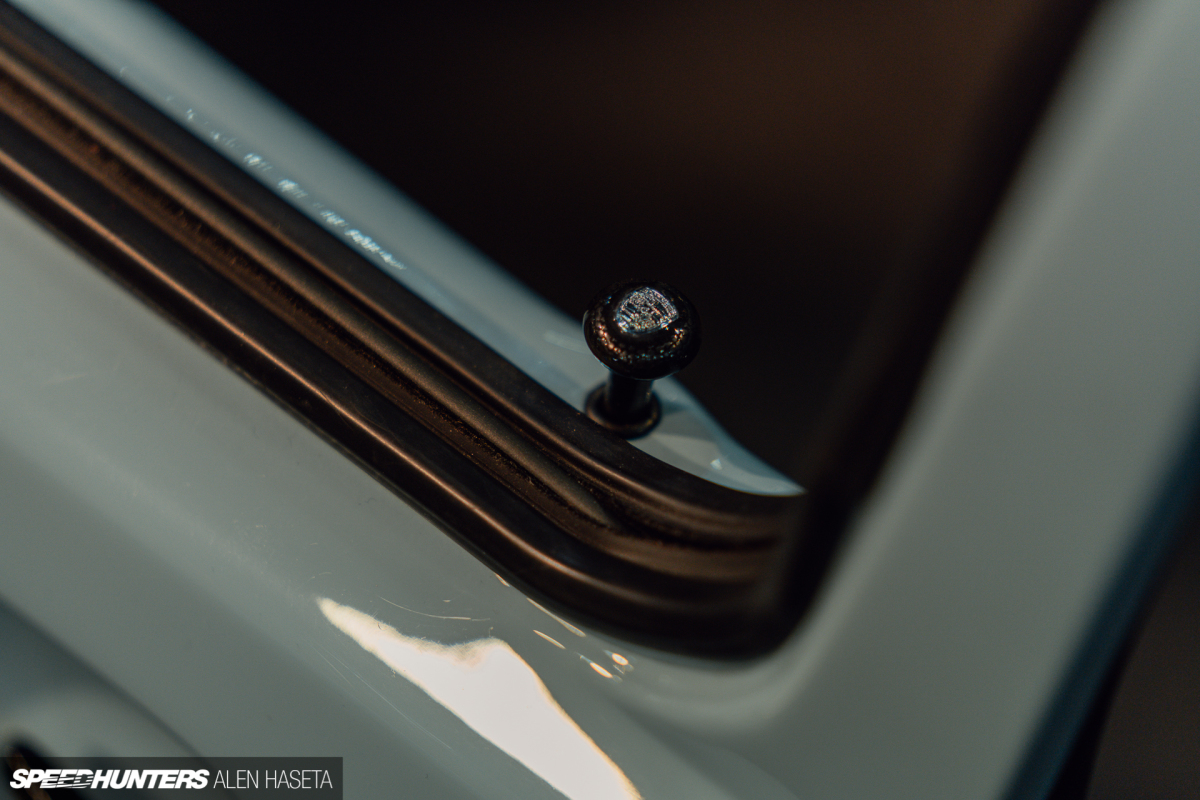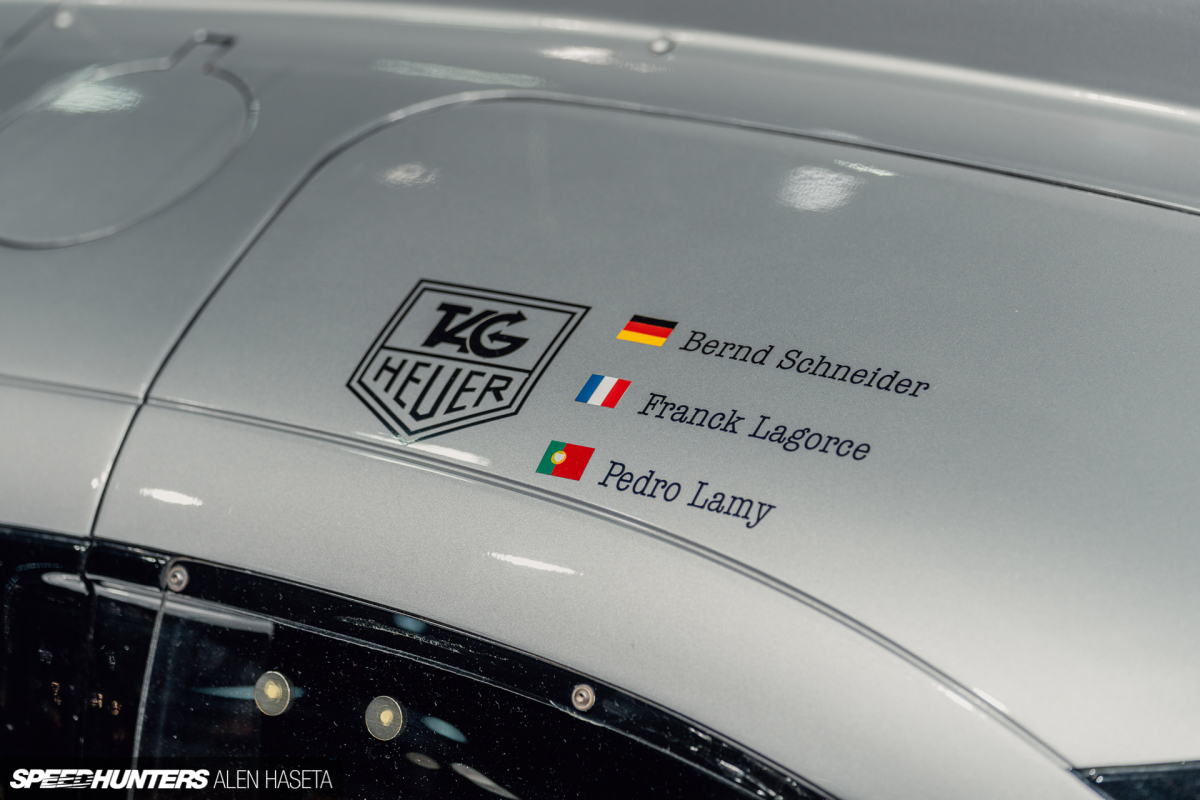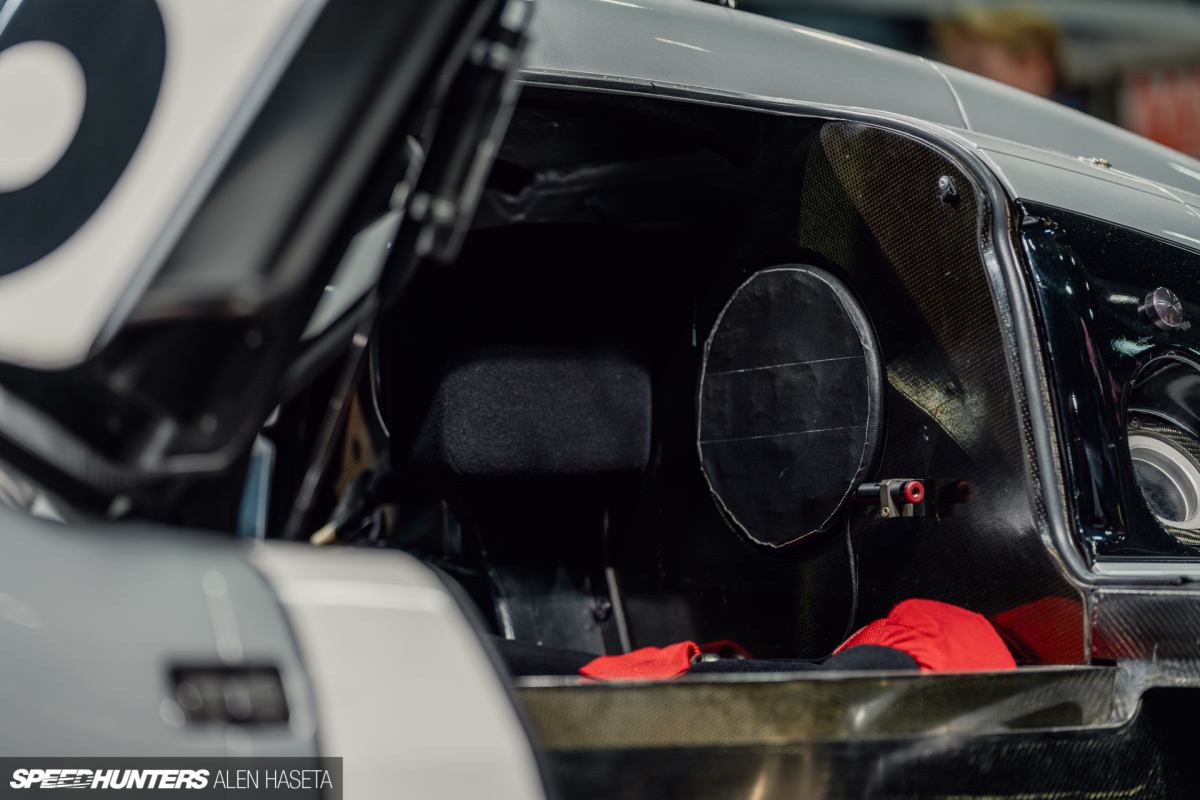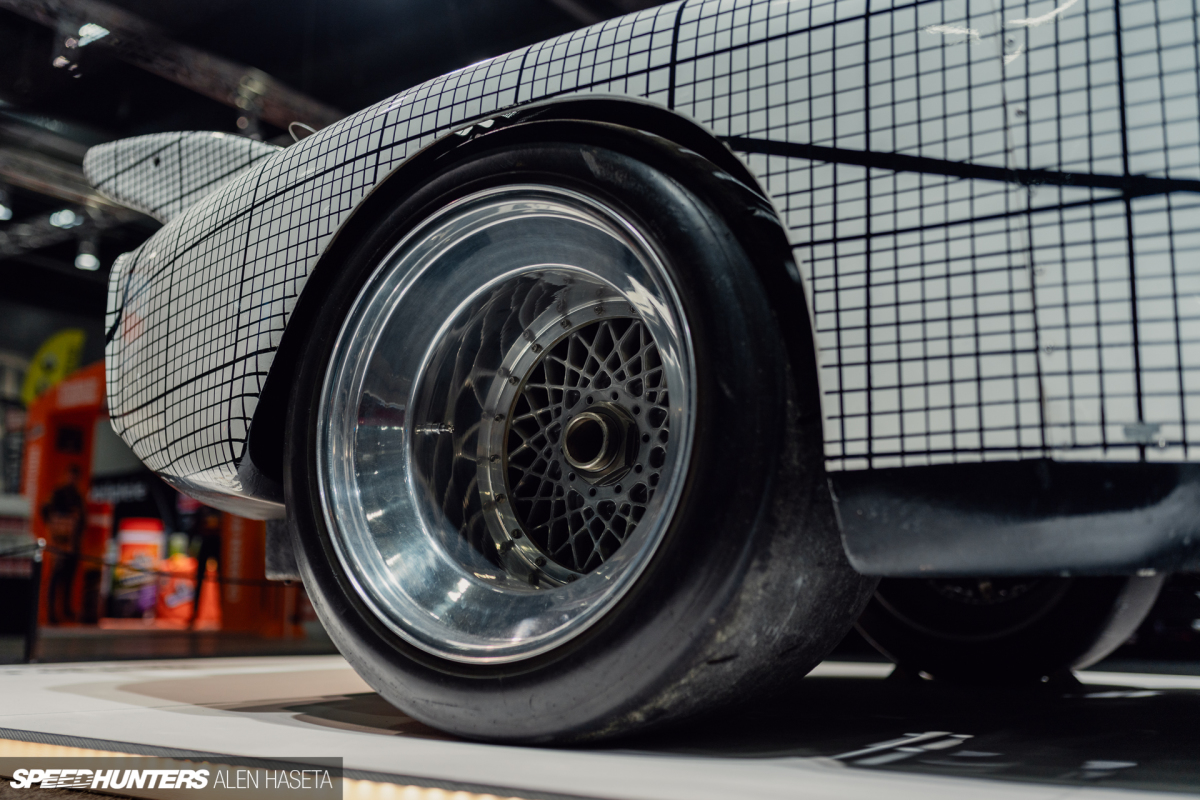For Scandinavian automotive fans, October sometimes indicators three issues: time to tuck away summer time rides till the roads are clear once more in about six months, anticipation for SEMA protection, and, most significantly, the Oslo Motor Present.
Held on the Nova Spektrum conference heart in Lillestrøm, Norway, this annual occasion showcases the best automotive builds from Scandinavia earlier than the lengthy winter units in.
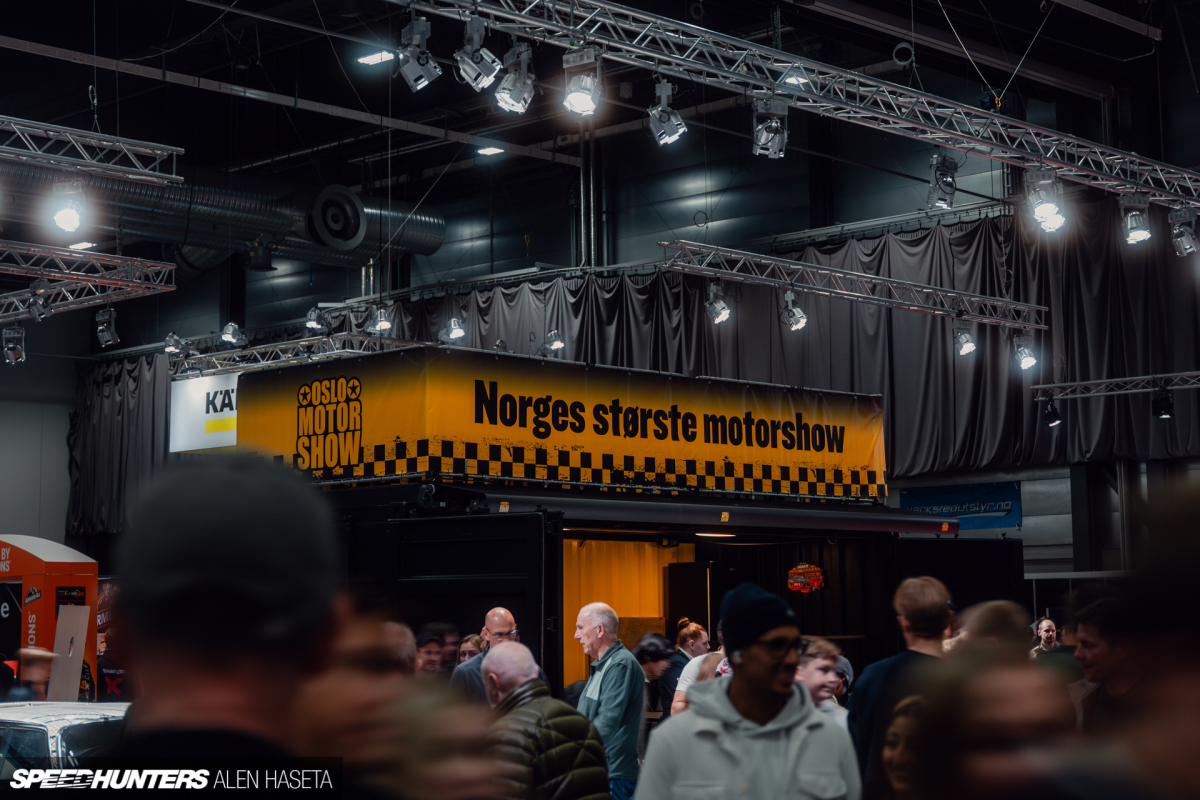

I look ahead to this present for a number of causes. Whereas smaller than the Elmia Customized Automotive Present in Sweden, the Oslo Motor Present persistently options exceptional automobiles. Listed here are my favorites from this yr’s exhibition…
Viktor Mårtensson’s 1999 Honda Civic EJ9

Let’s begin with a well-recognized face. Lengthy-time Speedhunters readers might bear in mind Viktor Mårtensson‘s internet-breaking construct from 2013.

His unbelievable 1JZ-swapped Volkswagen Caddy was in contrast to something seen earlier than, leaving Paddy speechless the primary time he noticed it. For this newest construct, Viktor has taken a extra understated method together with his all-wheel-drive ’99 Honda Civic EJ9, designed for avenue efficiency.

The outside has been neatly custom-made with carbon/Kevlar-skinned entrance fenders, roof, and trunk. Complementing these are {custom} aluminum aspect spats and metal rear fenders.
Tein coilovers set the stance, whereas Work Meister S1 wheels – 16×8.5-inch throughout and fitted with stretched tires – pull the entire look collectively.

Inside, Viktor has taken a minimalistic method. Whereas his previous builds featured full {custom} interiors, this one is easier, with only a pair of Bride Low Max seats, a Honda CR-V shifter, and a Luisi steering wheel.
The true spotlight, nevertheless, is beneath the hood…

Initially fitted with a 1.5L D15Z3 SOHC VTEC-E engine good for 90hp, the Civic now boasts a completely constructed 2.0L K20A2 DOHC iVTEC mill producing greater than 4 and a half occasions that, married to an all-wheel-drive Honda CR-V driveline.

Viktor’s imaginative and prescient was to create a high-revving four-cylinder – with enhance. Reliability was key, one thing mirrored within the high quality elements by means of the engine construct, together with the only Garrett G30-770 turbocharger, paired with a {custom} exhaust manifold and a 50mm Turbosmart wastegate.
Bosch 1,300cc injectors guarantee optimum gasoline supply, supported by a Radium gasoline rail and strain regulator. The engine, full with a Skunk2 consumption manifold, VAG ignition coils, and a {custom} wiring harness, was crafted by Viktor in his dwelling storage.

With 415hp on faucet and the ability being put down by means of all 4 wheels, this little Honda resides its finest life.
Per Christian’s 1989 BMW E30 325i

From one stance construct to a different, this BMW E30, constructed by Per Christian from Norway, instantly caught my eye.
Whereas the outside maintains a clear, minimalist aesthetic enhanced by Air Elevate Efficiency air suspension and Work Meister S1R break up wheels, it was the inside that actually piqued my curiosity.

Per drew inspiration from interiors of the Nineteen Eighties for his {custom} plaid inside.

The doorways, entrance and rear seats, and elements of the middle console are upholstered in Italian purple Alcantara, complemented by the plaid material, which Per sourced from Portugal.

The trunk homes a single 10-inch Focal subwoofer, a 300W monoblock amplifier, and two Streetec Comp2 Evo air compressors for the air experience, all neatly built-in.

Up entrance, the identical plaid material adorns sure engine elements, although these are for present solely and are eliminated when Per drives the automotive. The M20B25 engine has undergone a serious refresh, making every thing within the bay look new.

Whereas {custom} interiors aren’t all that widespread in Scandinavian automotive tradition, a choose few totally embrace this inventive method, Per being considered one of them.
Fredrik Forsberg’s 1982 Volkswagen Golf Mk1
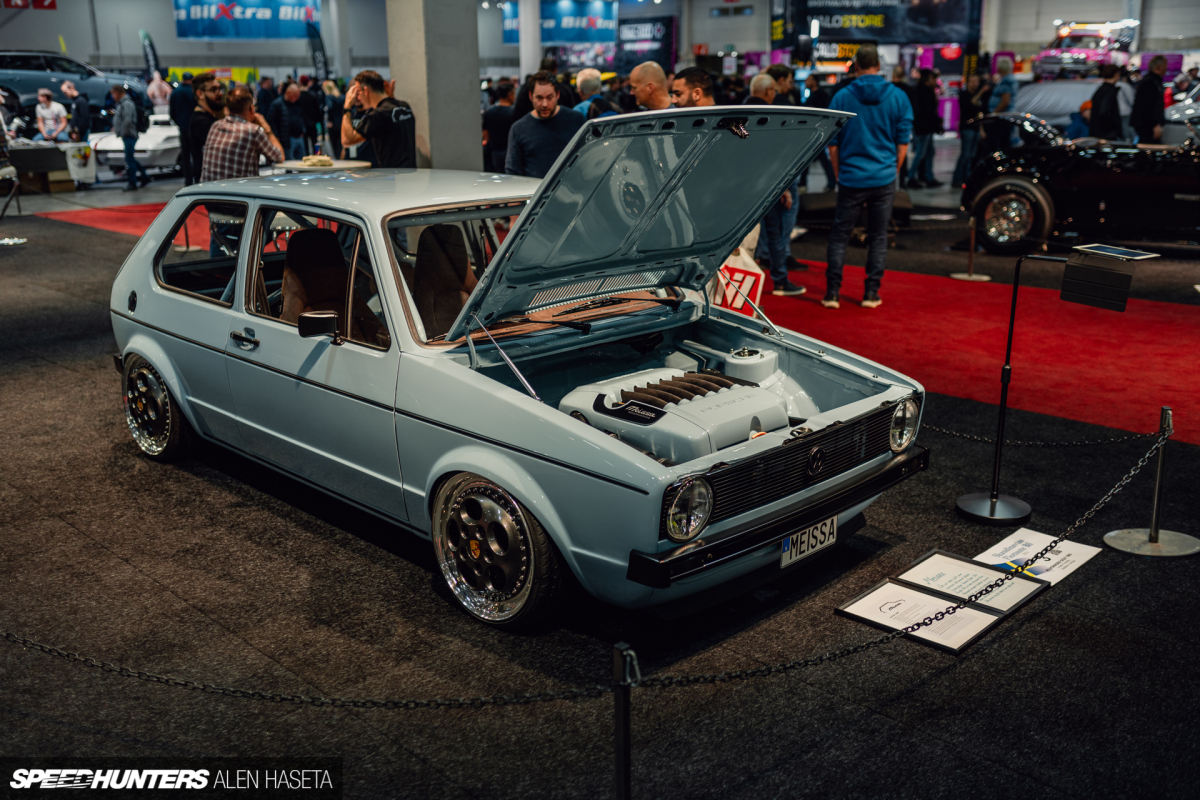
I’ll admit, I didn’t totally respect this automotive after I first noticed it on the Customized Motor Present (aka Elmia) earlier this yr.

I made a decision to dig deeper, and I’m glad I did. Fredrik Forsberg’s Volkswagen Golf Mk1 – geared up with Air Elevate Efficiency air suspension – is a masterclass in execution.

The shaved engine bay is dwelling to a 3.2L Porsche Cayenne inline-six engine, producing roughly 270hp. Energy is transmitted to the wheels by means of a Volkswagen Golf Mk3 VR6 02A CCM 5-speed gearbox, enhanced by a Peloquin limited-slip differential.

The primary {custom} work might be seen within the inside, which contains a redesigned dashboard with handmade extensions and a Porsche 911 instrument cluster. The seats got here from a Porsche 944, reupholstered in handmade woven Alcantara and leather-based. Gear adjustments are made by means of a CAE quick shifter, and the steering wheel is from Momo. The door panels, carpets, headliner, and trunk additionally showcase comparable meticulous craftsmanship, and beneath all of it, Fredrik put in Silent Coat sound deadening.

On the outside, Fredrik went for a clear, minimalist look, highlighted by a putting colour. The ‘Meissa’ branding within the engine bay references the Porsche 356 Meissen Blue paint.

There are quite a few Porsche particulars all through, together with custom-made 944 Teledial wheels, 996 Carrera 4-piston calipers paired with 305mm discs within the entrance, and Porsche door handles with engraved locks.
I’m glad I took a second have a look at this automotive, because it shortly grew to become considered one of my favorites of the occasion.
1999 Mercedes-Benz CLR

When you had been to ask me to outline an automotive masterpiece, this could be it: the Silver Arrow crafted to safe victory for Mercedes-Benz at Le Mans.

The CLR’s aerodynamic silhouette is impressed by the CLK LM, which dominated the 1998 FIA GT championship. It’s arduous to not admire the intricate particulars of what was meant to be Mercedes-Benz’s subsequent racing champion. However sadly, the CLR by no means completed a race.

This automotive was considered one of three entries for the 1999 Le Mans race at Circuit de la Sarthe, and notably, it was the one one which didn’t take flight throughout the occasion.

The #4 automotive, pushed by Mark Webber, went airborne twice: as soon as in qualifying and once more throughout the warm-up.

In the course of the race, the second CLR, #5, pushed by Peter Dumbreck, launched skyward at 200mph (322km/h), hovering 50ft (15m) earlier than flipping a number of occasions. Remarkably, each drivers survived their incidents with solely minor accidents.

The third automotive – this one – was withdrawn earlier than the race, resulting in the tip of the CLR racing program and prompting the FIA to revise rules for future Le Mans occasions.

As I circled this unbelievable machine, I couldn’t assist however marvel what the racing panorama can be like if Mercedes-Benz had succeeded with the CLR. Would motorsport have taken a unique path?

This CLR now resides on the Nationales Automuseum The Loch Assortment in Dietzhölztal, Germany, however in the event you’re fortunate, you may spot it at a automotive present, simply as I did.
1976 BMW 3.0 CSL By Frank Stella

What are the BMW Artwork Vehicles? Initiated within the late Seventies by French race automotive driver Hervé Poulain, the thought was to merge race automotive tradition with up to date artwork. The end result? Twenty distinctive vehicles, every painted by a famend artist, with Frank Stella’s contribution on the 1976 Group 5 BMW 3.0 CSL being one of the crucial iconic.

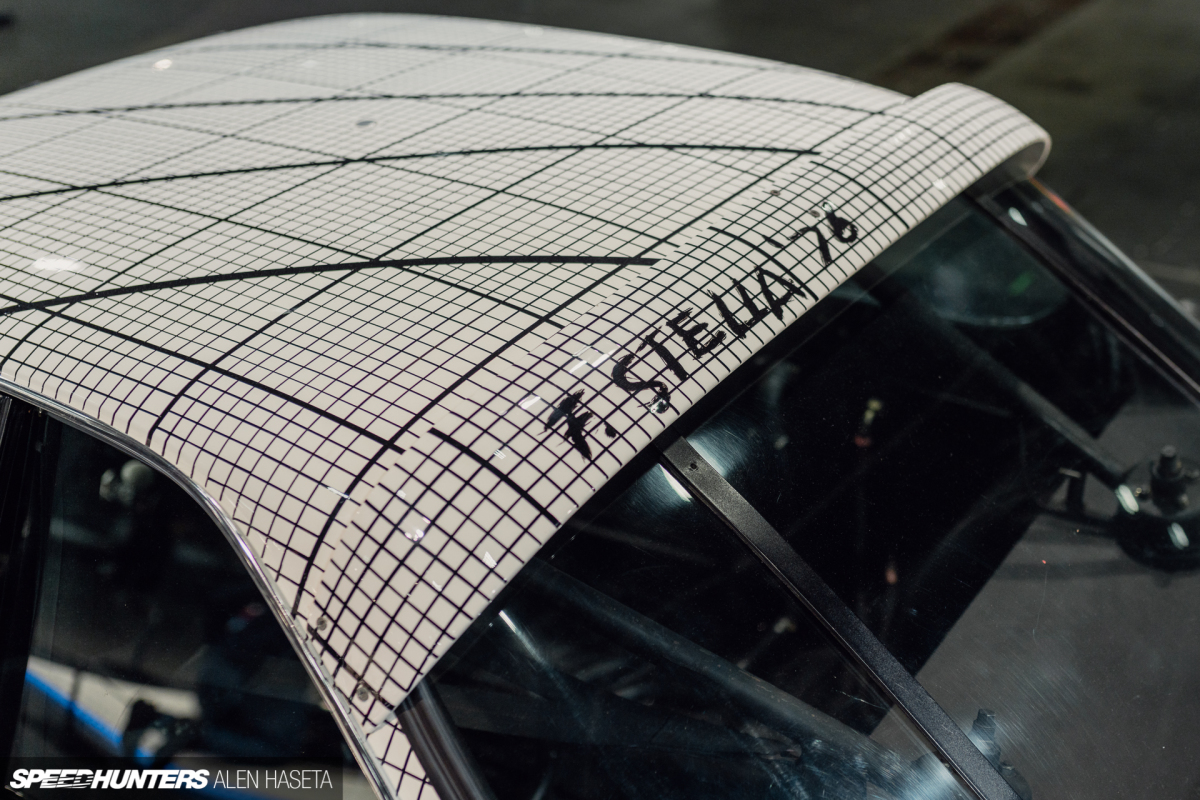
Each inch of the automotive’s physique is roofed in a black-and-white sq. grid sample, accentuating its curves and contours.

This design distinguishes it from different BMW Artwork Vehicles, which frequently characteristic vibrant colours and summary shapes, opting as a substitute for a particular minimalist method.


The automotive wasn’t only for appears; it was geared up with a turbocharged six-cylinder inline engine producing 750hp, able to reaching speeds as much as 341km/h (211mph). It competed within the 1976 24 Hours of Le Mans however sadly needed to retire resulting from an oil subject.

Because the first Artwork Vehicles, this initiative has turn into a celebrated custom for BMW, mixing efficiency and artistry to exhibit that automobiles might be extra than simply machines – they will also be canvases for inventive expression.
The identical might be stated for the exceptional vehicles I’ve highlighted right here.
Alen Haseta
Instagram: hazetaa



